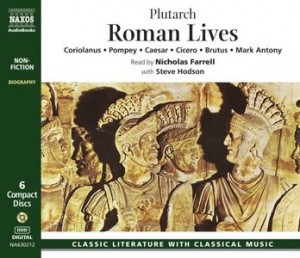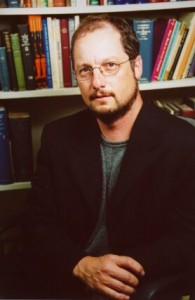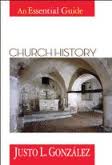 Roman Lives
Roman Lives
By Plutarch
Rating: 6 of 10
If you’re a history buff you will love this book. If you’re not, well, probably not. I picked up this audio book after reading Robert Harris’ novels about Cicero, Imperium and Conspirata. Harris made me curious to know how much of what he wrote about Cicero was historical and how much was fiction. I was surprised to find that the general thrust of Harris’ portrayal of Cicero was quite historical. Plutarch may have even been a source for Harris’ writing. Plutarch is a late first century and early second century historian. Roman Lives focuses on the lives of Coriolanus (I skipped over), Pompey, Caesar, Cicero, Brutus, and Mark Antony.
While I did not go into this book looking for historical background for the New Testament, I found that Plutarch has helped expand my imagination for the broader culture of the region within which sits the authors and characters of the New Testament. For example the Biblical book of Revelation speaks in symbolic images about the threat that the Roman Empire (or any empire) poses to following Jesus faithfully. Roman Lives fleshed out that threat by giving me a better perspective on just how much war, violence, and general immorality were caused by figures like Pompey, Caesar, Brutus, and Mark Antony warring their ego’s against one another on the battlefields of the Mediterranean. Interestingly enough, Cicero seems to be a fairly moral leader amidst these others, and Harris portrays him as such in his historical novels.
The comparison between the Roman Empire and The United States has been made several times, but after reading Roman Lives I am struck by the parallels between the time of the dissolution of the Roman Republic and our own current political situation. We are living in frighteningly similar times. This should, I think, cause we Americans to have a bit of humility when it comes to our engagement with both the rest of the world and our potential historical legacy. In its day, who would have thought that the Roman Empire would cease to exist? And in our day, who can imagine The United States ceasing to exist? This humbling reality drives me to seek my primary identity and citizenship in another kingdom, the kingdom of heaven.
Currently Reading/Listening
The Busy Family’s Guide to Spirituality by David Robinson
Parenting with Purpose by Oddbjorn Evenshaug, Dag Hallen, and Roland Martinson
At the Still Point compiled by Sarah Arthur
Sticky Teams by Larry Osborn
Fascinate by Sally Hogshead
Direct Hit: Aiming Real Leaders at the Mission Field by Paul Borden
Shaped By God’s Heart: The Passion and Practices of Missional Churches by Milfred Minatrea



Recent Comments